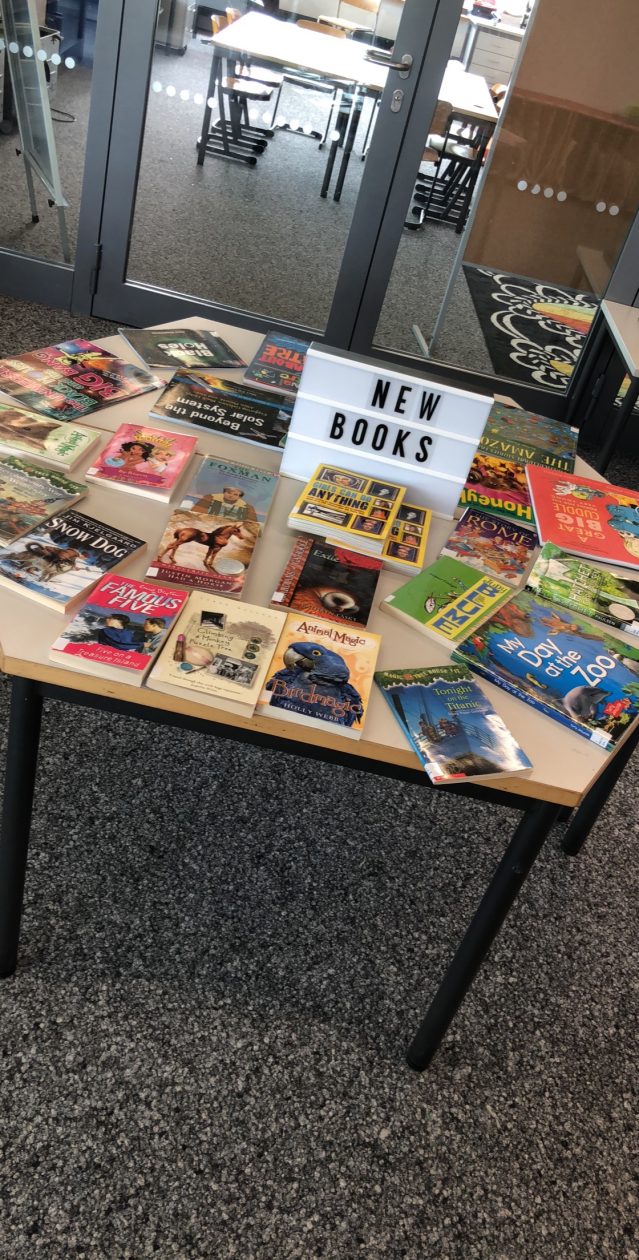From the very beginning of my placement at ISS, I have seen a great deal of importance being placed on the encouragement of reading and seeing the joy that can be gained from reading a great book.

Once you make your way up the stairs to the library, you are greeted by books that are relevant to the times of today. Stephen Hawkings has recently passed away and the librarian wants to bring awareness to who this great man was and how the library can facilitate this learning.
On the top floor of the Lower School Campus, one can find the ISS Library for lower school students. It has a stockpile of books with a large arrangement of different authors, genres and themes. As I have worked across the grades, I have seen, without fail, a slotted time where grade levels will get the chance to visit the library, take out books and be able to explore literature with the librarian.
The children are encouraged to use it for aiding in their studies, which makes total sense when the inquiry-based approach requires students to be autonomous enough to go out and research any given topic with the correct amount of prompting from adults – this is where the library can come in and assist.
One prime example of this is with the grade 5 students. As they prepare for their exhibition where they will showcase a key topic that they have researched themselves, grade 5 students need to find sources in which they can find information about their chosen topic. The librarian is also there to assist the students in searching for the best kind of materials to use as sources. This then, from a young age, gets children to really question the information they are presented on an everyday basis and to really examine what counts as a reliable source. Furthermore, the Grade 5 students even have timetabled slots where they must meet with the librarian during their research stages of their exhibition (and even beyond this, the librarian will still continually meet with children to go through their resources).

The catalogue is always being updated! New books are always being brought in – specifically Erasmus books about the visiting guest’s home countries were also brought in.
What I find most interesting about the overall view on literacy is that, because of the regular visits to the library, students take a greater pride in reading books as a whole. I think it translates much like the school ethos; the library is a space in which all students can come for whatever their purpose requires them to be there. They might have homework around a particular topic and they want to find out more information, they might need to know about particular animals for a Unit of Inquiry, or they may simply want to have a quiet space where they can relax and read for leisure. It is the concrete for building upon a love for books and literature itself.

The 13-Storey Treehouse by Andy Griffiths and Illustrated by Terry Denton – the children were exposed to this book and introduced to what it was about and how the librarian loved it which sparked interest in the book and it’s series. .
The librarian is also very dedicated to her practice at ISS, as I have seen her recommend various types of books depending on the level of the children that are in the library at the time she is working with them. This is another point that is very crucial in the encouragement of literacy and reading: the exposure to new texts from a knowledgable source can really get children on board to picking up a book to read. If a child hears an enthusiastic practitioner talk about a book that covers their particular interests, they can gain a lot of literacy learning from being encouraged to read it. One example of this was with the grade 3 students where it was announced what book won a competition as being voted the favourite book and it was “The 13 Storey Treehouse” by Andy Griffiths. This then sparked the librarian to introduce the other books that were part of the series. At the end of the children’s input at the library, I saw many copies of the book and others from the series being checked out by the students. This showed me that we have a big influence on what our children can be reading (or not reading at all, if we aren’t enthusiastic about reading).
Overall, this short blog post about the importance of reading came about because of the great importance the library has on the lower school of ISS. This then means that it had to become an important part of my reflections as a practitioner. Utilising the resources around you is a crucial aspect of being a teacher and one must be able to see the potential of what is around them. Furthermore, it interlinks with another factor that influences the school as an organisation. They must have adequate staff members that have a profound passion for books and reading to instil similar passions in the children that come into contact with the library (which is probably almost every child in the school!).
